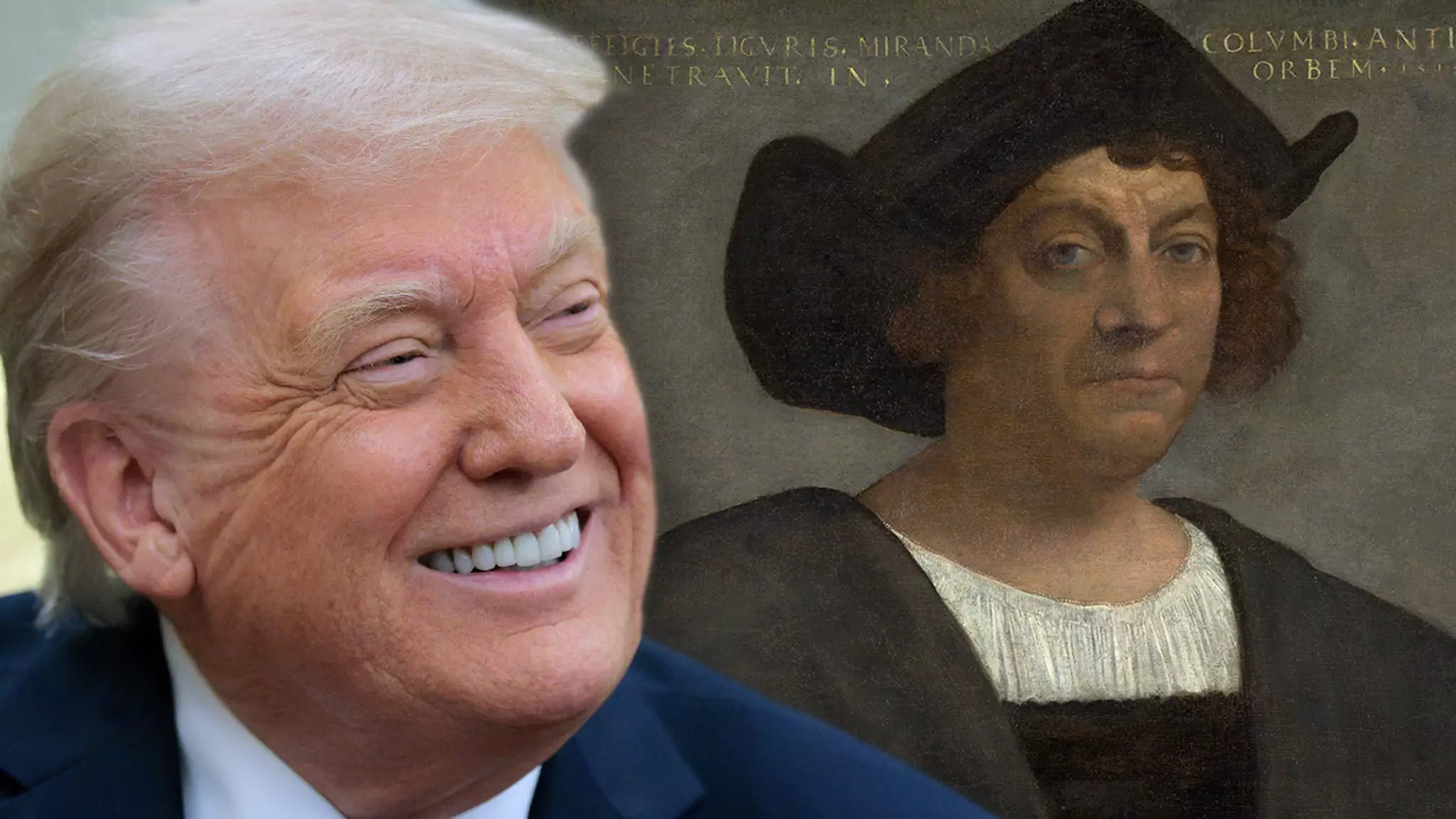Former President Donald Trump’s recent proclamation on Truth Social has reignited a long-standing debate surrounding Christopher Columbus and his legacy. With a focus on defending Italian heritage, Trump frames his intent as a noble crusade against what he perceives to be a leftist assault on Columbus’ reputation. His assertion that “the Left” has obliterated the once-illustrious standing of Columbus reveals the deep cultural rift that today’s America grapples with. This isn’t just about a holiday; it encapsulates a broader struggle over identity, history, and the narratives we choose to embrace or reject.
The enthusiasm expressed by Trump for Columbus reflects a yearning for a simplified narrative, one that can evoke pride in a shared heritage while simultaneously ignoring the complex and often painful histories tied to European colonization. Rather than examining Columbus within a nuanced historical framework, Trump opts for a childlike captioning of history where Columbus is undoubtedly a hero who deserves his day—a depiction that glosses over the atrocities suffered by Indigenous peoples.
The Political Landscape of Heritage
In Trump’s latest remarks, he vehemently denounces activists who have torn down Columbus statues, likening these actions to a war on heritage. This rhetoric taps into a potent strategy: mobilizing his base around perceived threats to cultural traditions. The uproar surrounding Columbus Day is not merely a matter of historical representation; it is a battlefield for political ideologies, with Trump squarely positioned as the defender of a misconstrued past. By advocating for the revival of Columbus Day “under the same rules, dates, and locations” that it has traditionally held, Trump is not just commemorating a navigator but rather rallying those invested in resisting the change brought about by movements like Black Lives Matter and the push for Indigenous Peoples’ Day.
Yet, this endeavor also raises questions about the nature of federal acknowledgment. Columbus Day remains a federal holiday, yet its observance has diminished over time, especially in places that seek to honor Indigenous history. Trump’s remarks provoke scrutiny: is this about restoring the sanctity of Columbus, or is it a tactical maneuver to galvanize a populace disheartened by a shifting cultural landscape?
The Performance of Politics
Trump’s decisions surrounding Columbus Day have a performative nature that aligns neatly with his previous actions in office. Everything from his approach to political rallies to his social media posts suggests a keen awareness of narrative building. In his recent comments, he hints at “pageantry” for the celebration, thereby encapsulating the intersection of governance and spectacle. The reintroduction of an elaborate Columbus Day could be seen as attempt to create an elaborate tableau of nostalgia and pride, mired in a sea of contemporary discontent.
Ultimately, Trump’s fervor for Columbus may lead to heightened displays of Americana during the October holiday, transforming it into an occasion for those rallying against contemporary social movements. As America continues to wrestle with its complicated past and the legacies left behind by figures like Columbus, the conversation stirred up by Trump’s comments invites both a reckoning with history and a question of how we decide which narratives deserve preservation in the context of modern values.

